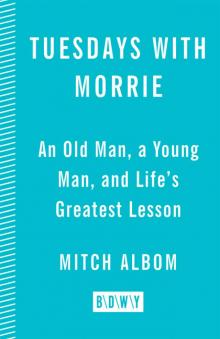 Tuesdays With Morrie
Tuesdays With Morrie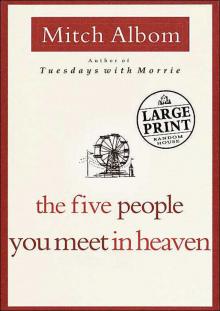 The Five People You Meet in Heaven
The Five People You Meet in Heaven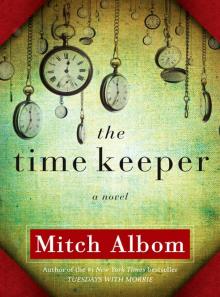 The Time Keeper
The Time Keeper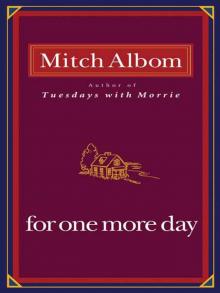 For One More Day
For One More Day The First Phone Call From Heaven: A Novel
The First Phone Call From Heaven: A Novel The Magic Strings of Frankie Presto
The Magic Strings of Frankie Presto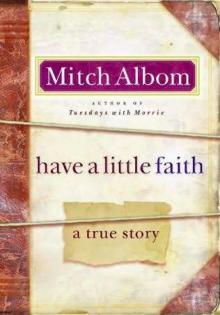 Have a Little Faith: A True Story
Have a Little Faith: A True Story The Next Person You Meet in Heaven
The Next Person You Meet in Heaven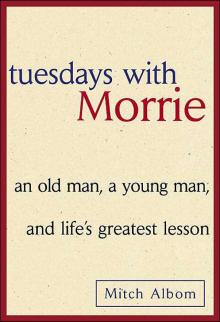 Tuesdays with Morrie: an old man, a young man, and life’s greatest lesson
Tuesdays with Morrie: an old man, a young man, and life’s greatest lesson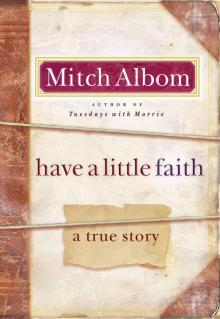 Have a Little Faith
Have a Little Faith